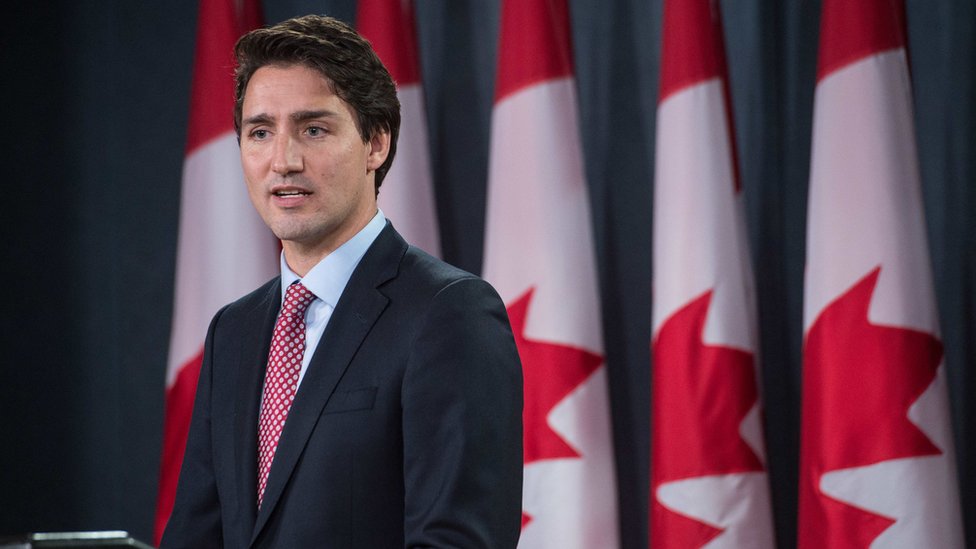

Media playback is unsupported on your device
Canadian PM Justin Trudeau has issued a formal apology to former residential school students in Newfoundland and Labrador.
Some 150,000 indigenous children over more than 100 years were separated from their families and forced to have a state-run education.
Survivors of five schools in the Atlantic province were left out of a previous 2008 national apology.
The federal government last year reached a deal with those survivors.
The class-action settlement for former pupils amounted to C$50m ($39m; £29.5m).
Mr Trudeau made the apology from Happy Valley-Goose Bay in central Labrador.
“For every Innu, Inuit, and NunatuKavut child in Newfoundland and Labrador who suffered discrimination, mistreatment, abuse, and neglect in residential schools – we are sorry,” he said.
- Trudeau to ask Pope for apology for Canada’s residential schools
- The truth about Canada’s ‘cultural genocide’
“While this long overdue apology will not undo the harm done, we offer it as a sign that we as a government and as a country accept responsibility for our failings.”
Between 1884 until 1996, when the last of the schools closed, children were removed and separated from their families and communities and sent to residential schools – church-run institutions and government-funded boarding schools.
The landmark Truth and Reconciliation report, released in December 2015, said the policy was an attempt to weaken indigenous culture, and amounted to “cultural genocide”.
The children were often not allowed to speak their language or to practise their culture.
“They were made to feel ashamed of who they were,” Mr Trudeau said.
More than 3,000 children died while at the schools and others suffered physical, emotional or sexual abuse.
“This burden is one you no longer have to carry alone. It’s my hope you can get some closure, that you can give your inner child some rest, that you can finally begin to heal,” he said.
In the early 20th Century, the Moravian Mission and the International Grenfell Association established boarding schools for indigenous children with the support of the province. The last of those schools closed in 1980.
The survivors were excluded from the formal federal apology issued by former prime minister Stephen Harper almost a decade ago because the schools existed before the Atlantic province joined the confederation of Canada in 1949.
Over 1,000 survivors of those schools disagreed with being excluded and filed a class-action against the government, which was settled in 2016.
Through tears, residential school survivor Toby Obed accepted, on behalf of all the students, the official apology from the federal government.
“This apology has been a long time in the making. Too long,” he said.
In 2008 “we felt left out, forgotten and abandoned. Canada has now accepted responsibility for all that we went through”.
Note: This story is auto-generated from BBC syndicated feed and has not been edited by AFRICA PRIME NEWS